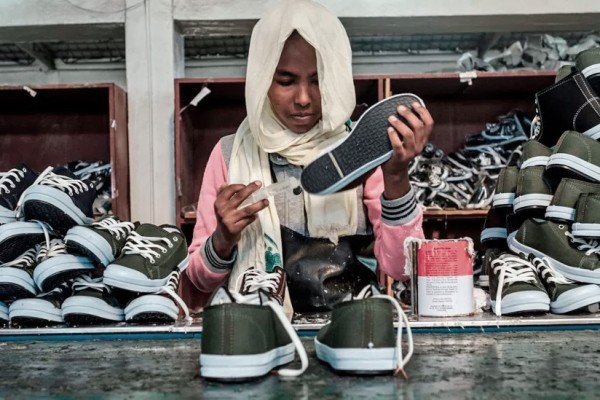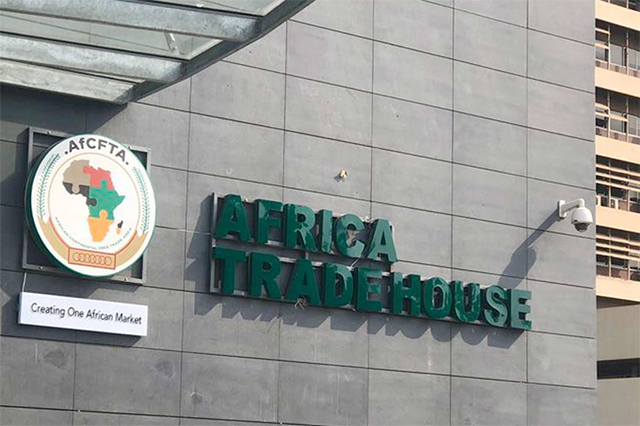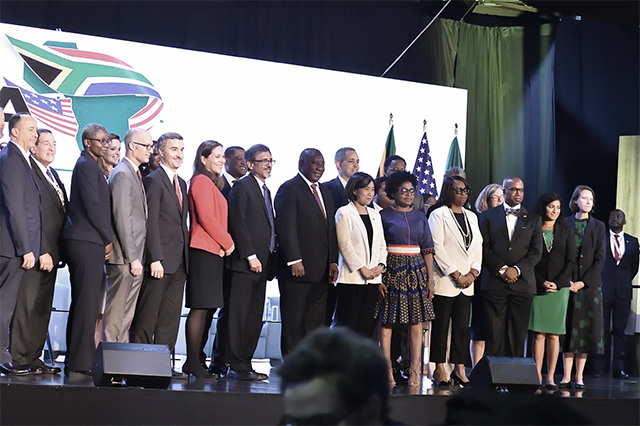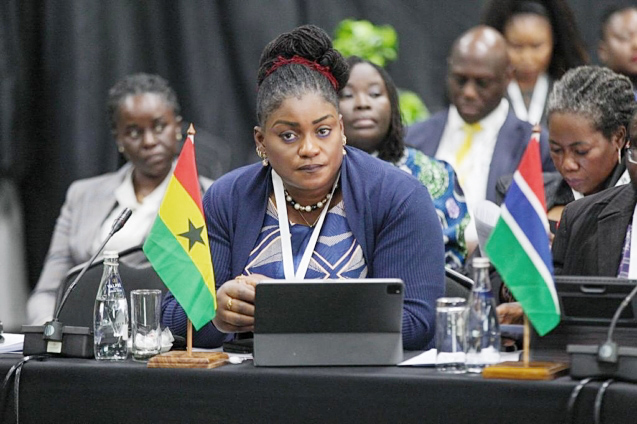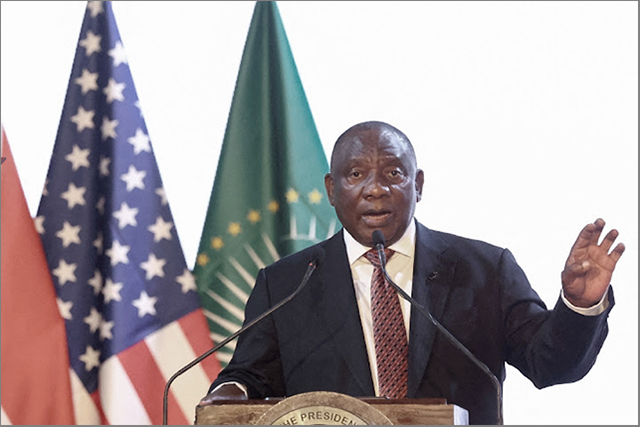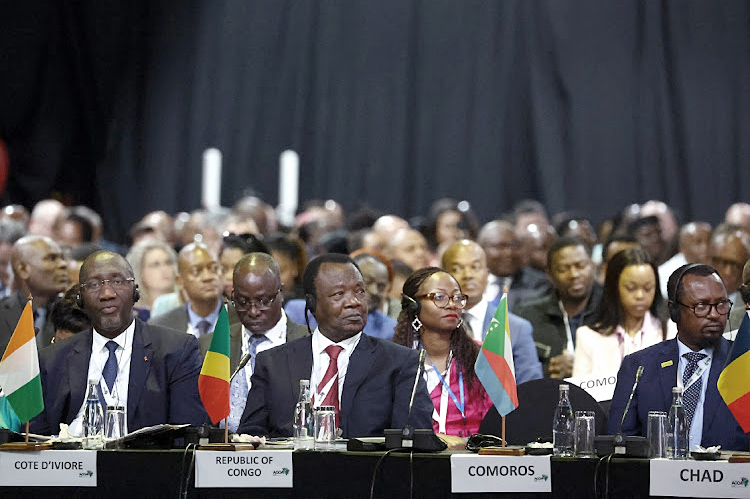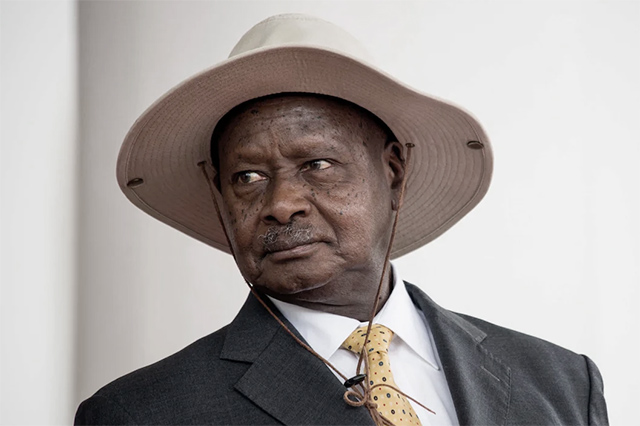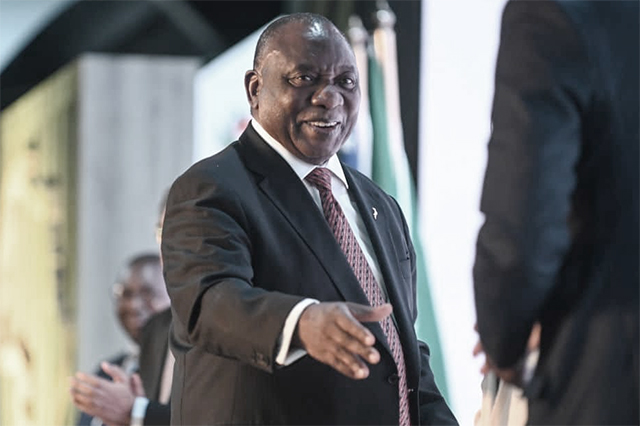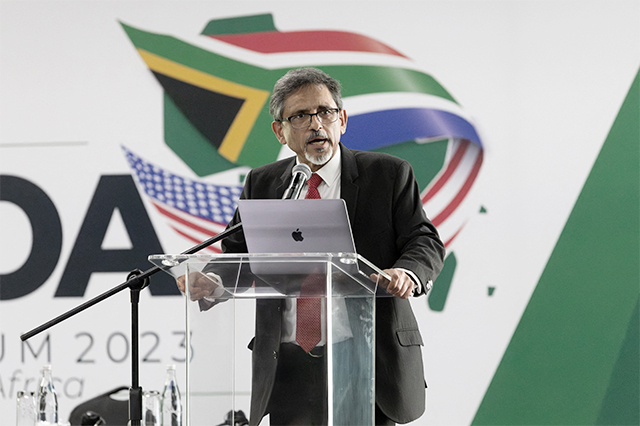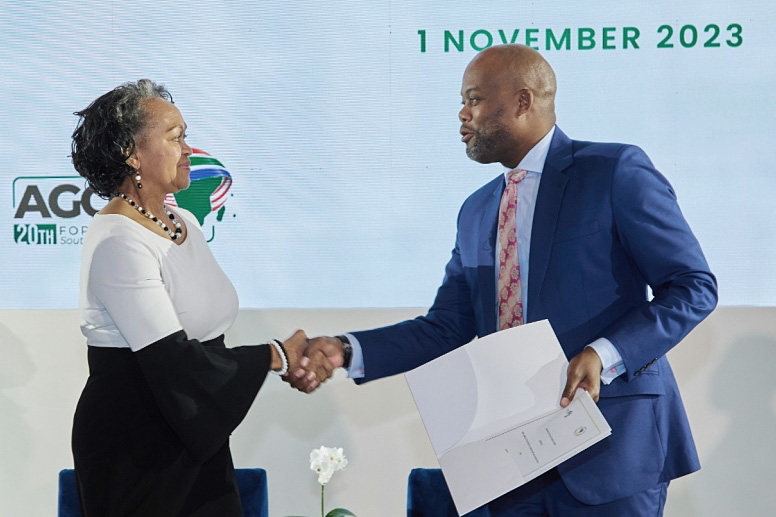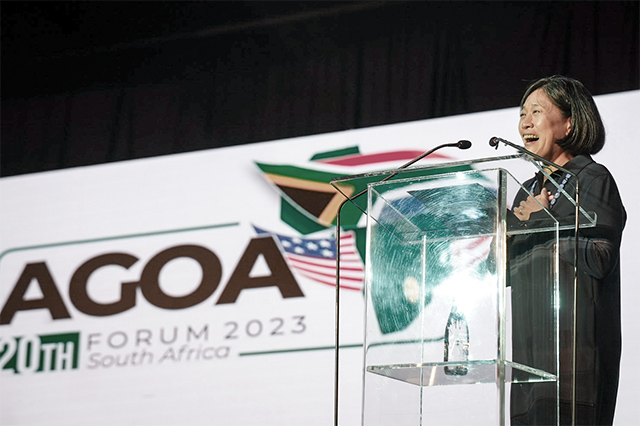AGOA Forum: Has the US trade pact helped Africa?
The future of what was billed as a game-changing trade agreement between Africa and the US is up for discussion in the South African city of Johannesburg over the next few days, with calls for it to be turned into a much longer-term pact, despite some criticism of the deal.
The African Growth and Opportunity Act (Agoa) was signed into law by former United States President Bill Clinton in May 2000, in a bid to improve trade and investment ties with sub-Saharan Africa on the basis that the best way to raise living standards on the continent and create badly needed jobs, was through trade, not aid.
What is Agoa?
It allows eligible African countries to export some of their produce to the US without paying taxes, meaning they are cheaper for US consumers to buy, and so they should buy more.
It covers more than 1,800 products - from BMW and Mercedes cars assembled in South Africa to Kenyan flowers and even jeans.
Participating countries are required to meet a set of conditions to qualify to trade under the programme.
They include:
- removal of barriers to US trade and investment
- support for democracy
- protection of internationally recognised human rights
- not engaging in activities that undermine US national security or foreign policy interests.
Of the 54 countries in Africa, 35 are currently trading under the programme which was renewed in 2015 and is set to expire on 30 September 2025.
The US renews the eligibility of each country every year.
Who has benefitted most?
South Africa was the largest exporter in the agreement in 2021. It generated about $2.7bn (£2.2bn) in revenue, mostly from the sale of vehicles, jewellery and metals.
Nigeria came second with revenue of more than $1.4bn, mostly oil, while Kenya came third with about $523m, according to statistics from the US International Trade Commission (ITC) and US Department of Commerce.
Other countries such as Eswatini, Ethiopia, Lesotho, Malawi and Mauritius have also massively increased their exports to the US under Agoa.
Hundreds of thousands of jobs have been created across the continent, although there are no precise figures. It also reportedly supports nearly 120,000 jobs in the US.
However, much of the initial growth in exports was in fuel, which has since declined.
And few of the African countries that qualify for Agoa benefits have used them fully.
There are a number of reasons, including a lack of infrastructure such as transport networks, energy supplies and specialist export-processing zones, as well as difficulties meeting the standards required by the US market.
Why has it been controversial?
Some say that removing access to Agoa because of human rights concerns mean that ordinary people are punished rather than the intended target - those in government.
Ethiopia, for example, lost its Agoa beneficiary status in January 2022 over what US President Joe Biden termed "gross violations of internationally recognized human rights" during the war in the northern Tigray region.
The eastern Africa nation had traded under the programme since 2000, with some 200,000 people, mostly young women, directly employed in the two most successful exporting industries under the Agoa, clothes and leather.
Ethiopia's exports to the US had grown from $28m in 2000 to about $300m in 2021, nearly half of it under the Agoa.
However, the country's withdrawal from Agoa saw about 100,000 people lose their jobs, according to Ethiopia's former chief trade negotiator Mamo Mihretu. The majority were women working in textile factories in the southern part of the country and not connected to the conflict in the north.
Ethiopia's government said that removing its access to Agoa would "reverse significant economic gains in our country and unfairly impact and harm women and children".
Others, however, say the conditions are crucial to ensuring that human rights are respected on the continent, and also gives the US leverage to help prevent conflict.
For example, just this week, US President Joe Biden announced that Uganda would lose access to Agoa over its tough new anti-homosexual law, as would Niger and Gabon following military coups and the Central African Republic (CAR), which has close ties to the Russian Wagner mercenary group.
While the US has announced that Mauritania's access to Agoa will be restored after the country made "substantial and measurable progress on worker rights and eliminating forced labour".
Some have also complained that under Agoa, African countries must remove all trade barriers to US imports, saying it is not fair that countries such as India and Brazil are not required to do likewise to enjoy duty-free access to the massive US market.
Why is used clothing controversial?
In July 2018, former US President Donald Trump suspended Rwanda's right to export clothing duty-free under Agoa, after the East African nation banned the import of second-hand clothes.
Rwanda's decision followed an agreement that had been adopted by the East African Community (EAC) in 2016, to ban imports used clothing imports by 2019 in order to boost the local clothes manufacturing businesses.
The EAC accounted for almost 13% of global used clothing imports in 2015, worth about $274m, according to a study by the US Agency for International Development (USAid).
However, a US trade organisation filed a petition with the Office of the US Trade Representative (USTR) in objection to the EAC's decision, saying that it would impose "significant economic hardship" on America's used-clothing industry.
The Secondary Materials and Recycled Textiles Association (SMRTA) said that the EAC's decision could cost about 40,000 US jobs and $124m in exports.
As a result, the US threatened to remove four East African countries - Kenya, Uganda, Tanzania, and Rwanda - from Agoa.
Rwanda went on with the ban, hoping that it would create more than 25,000 jobs in its nascent textile industry and protect it from being suffocated by cheap, second-hand clothes.
The US defended the suspension, saying that the ban on used clothing imports was a "restrictive trade measure" which went against the World Trade Organization (WTO) trade rules.
Uganda has now followed suit after President Yoweri Museveni announced a ban on used clothing imports in August.
He said that he was promoting the "Buy Uganda Build Uganda" national policy and that the second-hand clothes belonged to dead Westerners.
This may have been another factor in Mr Biden's decision to remove Uganda from Agoa.
So what happens next?
Despite the controversy, Agoa beneficiaries are expected to call for an early extension and renewal of the trade pact by 10 years.
The consensus is that an early renewal of Agoa would boost investor confidence in sub-Saharan Africa and increase trade opportunities.
In September 2023, Louisiana Senator John Kennedy introduced a new bill in the US Congress, which seeks to extend the Agoa programme by 20 years - until September 2045.
Mr Kennedy said the renewal of Agoa would help the US counter China's growing influence in the region.
The US Congress is unlikely to renew Agoa in its current form and may require some greater level of reciprocity from Agoa's beneficiaries.
For instance, South Africa's refusal to condemn Russia's invasion of Ukraine has raised questions about whether the US will include South Africa in Agoa's extension and renewal.
In June 2023, US legislators called for the relocation of the Agoa forum in November from Johannesburg because of the controversy surrounding South Africa's alleged arms shipments to Russia. South Africa denies sending any weapons to Russia.


